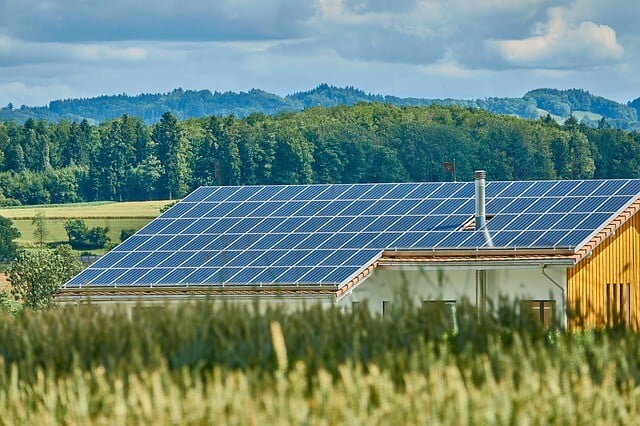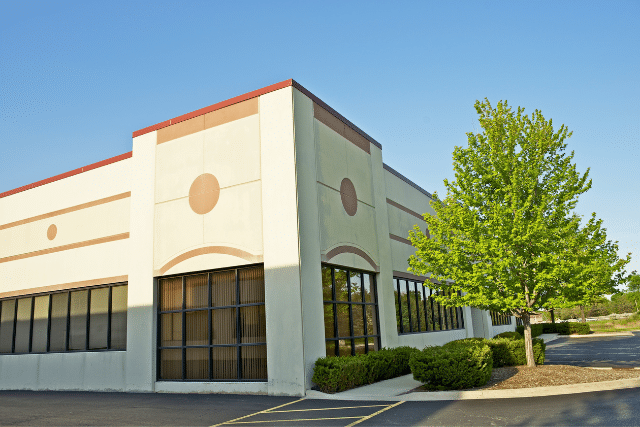Investors may find that the best commercial real estate purchases are in places other than where they live. It’s easy to buy a property online, but it can be harder to find good tenants and take care of a property that’s far away.
With the right method and tools, managing a commercial property from afar can be almost as easy as managing a commercial property next door.
Running any business can be challenging, but there’s added difficulty to managing one from a distance. The stress of remote working in commercial real estate is clear. To successfully control things, you must stay connected to every aspect of your business and simplify as much as possible.
Top 10 Tips to Run a Remote Property Management Company
It doesn’t matter how close or far away a rental property is from its owner; the owner needs to make sure that the property and tenants are taken care of. If not, cash flow could be hurt by more tenants leaving, and the return on investment (ROI) could be lower than expected.
Almost anyone can own and manage a remote rental property if they set their mind to it and follow the proper steps and plan. To manage a commercial property remotely, follow these 10 general steps.
1. Keep Information in One Place
Remote property management creates a lot of physical and digital paperwork. It’s essential to keep everything organized and in one place to keep everything running smoothly. For example, you should create an email separate from your personal account and have all work-related messages go there. The co-mingling of business and personal affairs creates unnecessary chaos.
All invoices, work orders, contracts, and schedules should be together, whether they’re physical or digital. It’s good practice to anticipate how you’ll share documents with your team and keep them in corresponding locations. It keeps all your information secure and streamlines your business — you’ll only need to go to one place for any document.
2. Station Someone Locally
Since you’re managing remotely, it’s essential to have someone local for certain activities. Work with your network to find local contractors and service people who can perform the functions you need. Even if you’re relatively close to your properties, it frees up your time so you can focus on more critical business functions.
3. Use Property Management Software
Consider using commercial property management software to run your business. Managing everything on your own, especially when working remotely, can be challenging. Software eases your workload, automates activities, and makes things more efficient. An online solution like STRATAFOLIO monitors tenant and lease activity, tracks your properties’ financials, manages work orders, and keeps investors updated.
Management software also enables you to collect information that helps your business grow. Around 55% of all businesses already use data to improve performance. You can track how well your properties are doing, your expenses and the local real estate statistics. Overall, it’s a valuable tool even when you do the majority of management yourself.
4. Stay Connected
You likely have several people who help you keep things running. For example, you may have accountants, landscaping services or maintenance teams you need to connect with on a regular basis. While not all of them will deal directly with the site, you should have a method to easily meet with them virtually or in person.
Continuous communication is foundational for effective property management. Speaking to everyone when you’re remote can be challenging, so work around it to make up for your distance. For example, you would schedule regular meetings to address issues, strategize, and create a team environment.
5. Be Involved
You likely won’t have much contact with the people using your properties, but you should still make yourself available to them. You rely on them to keep your business profitable, so it makes your job easier to establish a good relationship with them.
People are more likely to continue using the site if they have a good experience. You don’t have to hand out your personal contact information, but you should keep track of their questions and complaints and be prepared to respond. Direct communication will make them feel more valued and may increase your reputation.
6. Automate Anything
Many business functions can be fully or partially automated. For example, people can submit maintenance requests through a tenant portal instead of calling someone. This system reduces the cost of doing business because you save money on labor. With a tenant portal, you streamline requests and communication with the tenant. Plus, it also provides the data you need at the time of renewal. You will have information about that type of maintenance requests that have had, their payment schedules, etc.
You can streamline many daily processes and lighten your workload by automating as much as possible. Consider doing so for payment processing, screening, or accounting. It removes unnecessary go-betweens and keeps you connected to your properties.
7. Have Strong Security
Security systems will be extremely helpful since you can’t pop in to see your properties. They let you monitor them at any time and from anywhere. Additionally, they track and report everything to you, keeping you informed throughout.
Cameras are a particularly valuable addition because they increase property values and reduce crime. They also make the people in your properties feel safe. You feel more comfortable with remote work when you can instantly check on things at your fingertips.
8. Set Your Schedule
Depending on where you and your properties are based, you may have to communicate with people in different time zones. It can be tricky to keep traditional business hours when their day starts hours before yours.
Respect your time. Remote management, and property management in general, means you may have to work a few odd hours or take calls later in the day, but you should be reasonably firm with your boundaries. Set a schedule and communicate it with everyone you work with. Let them know what times are appropriate to reach out. Additionally, inform them of any exceptions — emergencies or holidays may affect your plan.
9. Visit Regularly
Visit your properties if possible, even if you have a trusted local team in place. You’re the one managing them, so you should be personally involved. You may notice things others don’t or be particular about something they’re not.
Virtually visiting is fine, but it’s best to go in person. It can be challenging to get there, but personally inspecting the area is crucial to running your business. You know exactly what you expect of your properties, so ensure everything is done to your standards.
10. Set Up Digital Portals
Digital portals make up a significant part of running a remote business. You’ll mainly work with your teams digitally, so setting up online places to streamline interactions is smart. For example, you would use an app specifically for scheduling responses to work orders. It would save you the time of back-and-forth communication and make things easier to manage.
Having a few designated apps or websites is necessary for running a business remotely. It requires some work and investment up front, but it makes communication effortless. It’ll also enable you to track your properties’ performance metrics, which lets you know if you can improve anywhere. Make sure everything is as connected as possible since your data will be more accurate with integrated tools.
The Impact of Remote Working on Commercial Real Estate
Remote working changes how you manage your business in a good way. You can see the impact of remote working on commercial real estate primarily in your communication. You’ll have to change your schedule or implement digital systems to keep in touch with your team. While you may not be able to meet face-to-face with them, you can still run things effectively.
Successfully Run a Remote Property Management Business
Be mindful of how connected you are to your properties and the extra work you may have to put in because of your distance. Commercial property management software, automation, and security systems will keep everything running smoothly and efficiently. You can successfully manage your property remotely with a bit of effort and some alterations to a typical management style.
If you’d like to hear more about what it’s like to run a property management business, STRATAFOLIO would be happy to tell you more about it. Schedule a demo!








